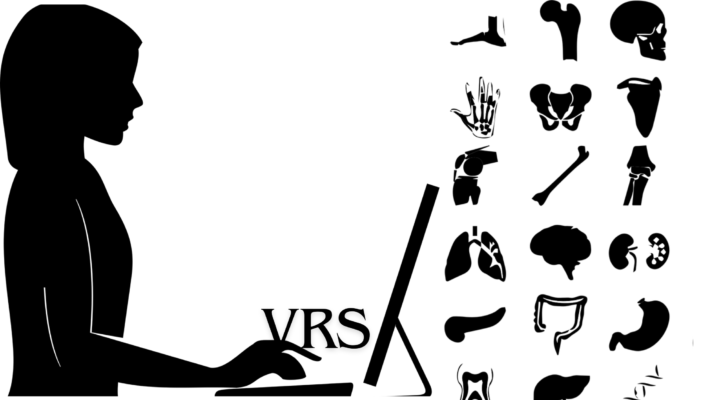
The Human Body and the Computer: A Lesson in Balance, Energy, and Natural Laws
The human body and a computer share striking similarities. Both function through complex systems where each part has a role, and when one part fails, the entire system suffers. By understanding how our bodies mirror computers, we gain profound insights into health, energy, and the consequences of violating natural laws.
The Body vs. the Computer: A Structural Comparison
1. Brain = Central Processing Unit (CPU)
- The brain processes information, controls bodily functions, and sends electrical signals.
- The CPU in a computer performs calculations and processes data.
- If the brain malfunctions: Memory loss, confusion, or even coma.
- If the CPU fails: The computer cannot function at all.
2. Heart = Power Supply Unit (PSU)
- The heart pumps blood to keep the body alive.
- The power supply delivers electricity to all parts of the computer.
- If the heart weakens: Fatigue, heart disease, or death.
- If the power supply fails: The computer shuts down.
3. Memory (Short-Term) = RAM (Random Access Memory)
- The brain’s short-term memory helps recall information temporarily.
- RAM stores temporary data for quick access.
- If short-term memory declines: Forgetfulness and difficulty learning.
- If RAM is low: The computer slows down.
4. Skeleton = Computer Frame (Chassis)
- The skeleton gives the body structure and support.
- The chassis protects the computer’s internal components.
- If bones become weak: Osteoporosis, fractures, and mobility issues.
- If the frame is damaged: The computer may be physically compromised.
5. Nervous System = Motherboard
- The nervous system transmits signals throughout the body.
- The motherboard connects all computer components.
- If the nervous system is damaged: Paralysis or loss of sensation.
- If the motherboard fails: The entire computer stops working.
6. Lungs = Cooling Fan
- The lungs take in oxygen and remove carbon dioxide.
- The fan cools the computer, preventing overheating.
- If the lungs fail: Shortness of breath, suffocation.
- If the fan fails: The computer overheats and crashes.
What Happens When We Violate Natural Laws?
Just as a computer crashes when components overheat or malfunction, the human body suffers when we ignore its natural requirements. Here are real-life examples of what happens when we fail to maintain balance:
1. Poor Diet & Junk Food → Corrupt Data Input
- Eating unhealthy food is like feeding a computer viruses. The system slows down, becomes inefficient, and eventually breaks down.
- Effects on the body: Obesity, diabetes, heart disease, fatigue.
- Solution: Eat nutrient-rich foods to fuel the body correctly.
2. Lack of Exercise → System Lagging
- A sedentary lifestyle is like a slow, outdated computer struggling to process tasks.
- Effects on the body: Weak muscles, poor circulation, increased risk of diseases.
- Solution: Regular exercise keeps the body running efficiently.
3. Sleep Deprivation → Overheating & Crashes
- Lack of sleep is like running a computer 24/7 without shutting it down—eventually, it crashes.
- Effects on the body: Weakened immune system, poor concentration, high stress.
- Solution: Get 7–9 hours of quality sleep daily.
4. Smoking & Alcohol Abuse → Virus Attack
- Smoking is like installing harmful software—it damages the system from within.
- Effects on the body: Lung cancer, liver disease, weakened immunity.
- Solution: Quit smoking, drink moderately, or avoid alcohol.
5. Social Vices & Stress → Network Malfunction
- Engaging in crime, dishonesty, or toxic environments corrupts the mind, just like malware damages a computer.
- Effects on the body: Anxiety, depression, mental disorders.
- Solution: Cultivate positive relationships, practice mindfulness, and avoid toxic influences.
What Happens When We Follow the Body’s Needs?
On the other hand, just like optimizing a computer improves its speed and performance, following natural laws enhances the human body’s efficiency.
- Eating a healthy diet → Increased energy, better immunity, glowing skin.
- Exercising regularly → Stronger muscles, improved circulation, longevity.
- Getting enough sleep → Better concentration, emotional stability, longer life.
- Avoiding harmful substances → Reduced risk of chronic diseases.
- Maintaining positive relationships → Peace of mind, mental wellness.
The Clock in Our Body: Bioelectricity & Neurons
The human body runs on bioelectricity, just like a computer uses electrical signals to function.
- Neurons (nerve cells) transmit electrical impulses, allowing us to move, think, and react.
- The body’s internal clock (circadian rhythm) regulates sleep, metabolism, and energy levels.
- Violating this clock (e.g., irregular sleep patterns) disrupts health, leading to fatigue, weight gain, and poor performance.
Can Energy Be Created or Destroyed?
According to physics, energy cannot be created or destroyed, only transformed. This applies to:
- Human Life: The energy we consume from food is transformed into movement, thoughts, and emotions.
- Electricity in a Computer: Electrical energy is converted into processing power, visual display, and outputs.
- Spiritual & Moral Life: Morality acts as a guiding energy that directs human behavior, just as electricity directs a computer’s function.
The Ultimate Lesson: Aligning with Natural Laws
By respecting the natural laws of the body, we can:
- Avoid premature aging and chronic illnesses.
- Enhance mental clarity and emotional stability.
- Maximize our full potential as human beings.
- Live in harmony with the universe’s design.
In contrast, violating these laws leads to sickness, stress, and premature system failure—whether in a human body or a computer. Nature has set rules, and when we align with them, we thrive!
💡 Share this article to inspire and educate others!